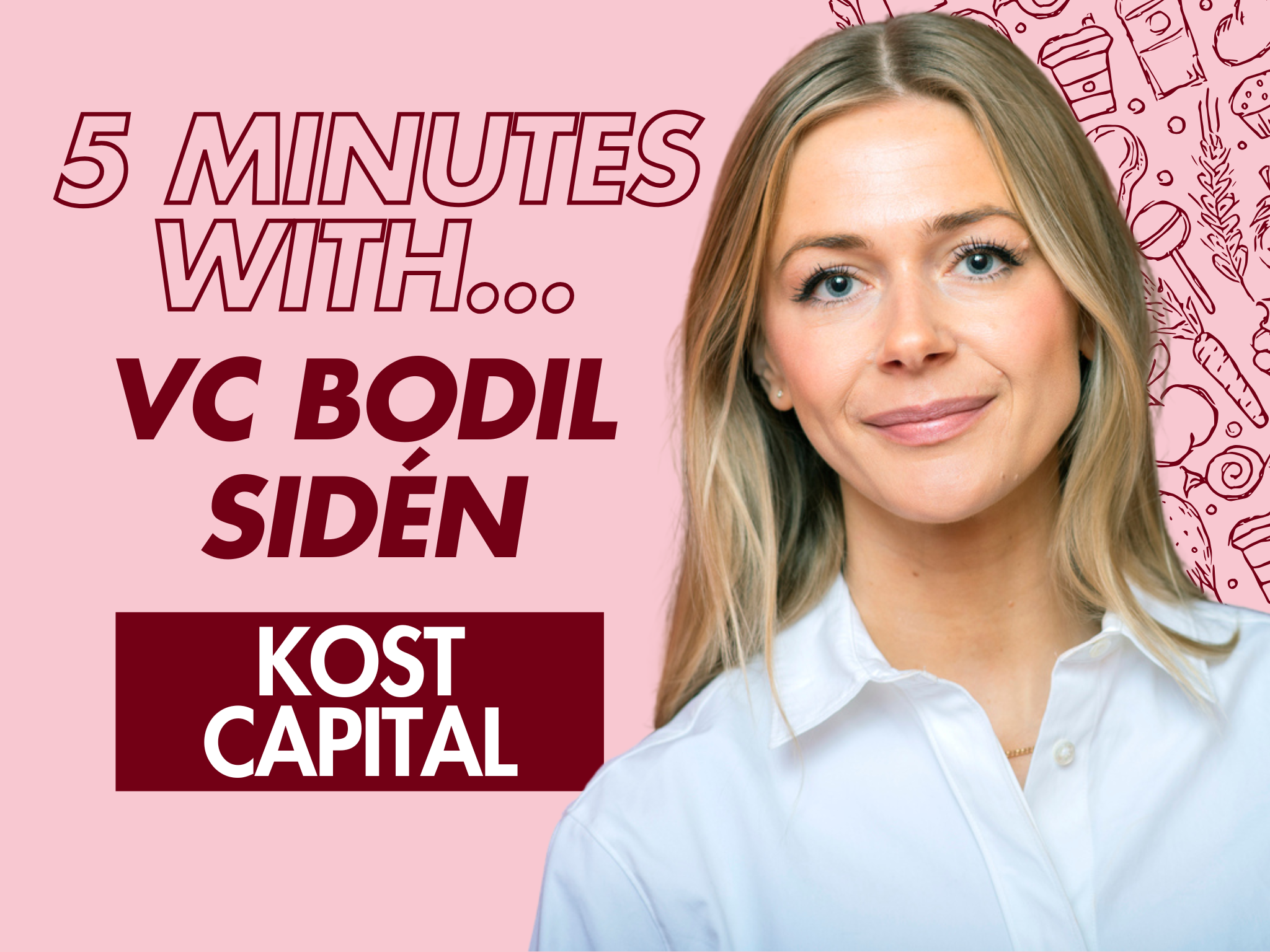3 Mins Read
In our interview series, we quiz future food investors about the solutions that excite them the most, their favourite climate-forward restaurant, and what they look for in successful founders.
Bodil Sidén is a General Partner at Kost Capital.
What future food technologies most excite you?
Using machine learning and artificial intelligence (AI) to improve scalability and predictability.
Many novel technologies in food are still too expensive to reach healthy unit economics and scalable business mode. This will be changed with AI and the difference now compared to the first waves of food tech is that food tech companies can be AI-first companies.
What are three future food verticals you are actively looking at for 2025?
- Functional ingredients that can improve our favourite food.
- Digital infrastructure and AI that can take steps towards ‘food as software’.
- Food safety and traceability in a world with challenged supply chains.
What do you consider the food tech sector’s greatest achievement in the past five years?
Initiating a market. Everything will happen in the coming five to 10 years, because it’s important and it’s urgent. And it would have been a lot harder without the first waves of food tech’s incredible effort to develop and apply the technology that sets the foundation of how we will develop the future of food.
If you could wave a magic wand, how would you fix plant-based meat?
Better, clean, nutritious inputs that can improve texture and flavour.
What’s the top trait you look for in a founder?
Impatience.
The One That Got Away: What is the deal you wish you had gotten into, but didn’t?
I think Planted is doing a super cool job with taste, texture and mouthfeel, and have come far in terms of scalability.
What do you consider your most successful future food investment so far?
It’s like naming your favourite child… but I am really bullish about our bean-free coffee company Rest, led by the amazing David Cerami.
What has been your most disappointing investment so far?
We launched in 2024 – so far, all our investments have been performing really well. So it’s probably ahead of us – and that’s okay – because it’s a natural part of early-stage VC. The most important thing is to learn from your mistakes and try to not repeat them.
What do people misunderstand/get wrong most about VC?
This is a tough one… I believe there’s something about risk-taking in VC that might be misunderstood sometimes. We’re obviously in the business of taking risks – but it needs to be in causation of the potential upside, and I rarely like to take both product and market risk.
And as a founder, it’s important to present not only your steps towards the next round but the long-term play with your business and how you plan to navigate through each step.
What is the most ‘future food’ thing you have eaten this month?
I had several feijoa fruits in New Zealand, an incredible fruit and a strong reminder that the future of food is within what’s already out there. There is an incredible amount of regional food that’s unutilised and better suited for the future instead of global, over-standardised and processed food.
Where is your favourite climate-forward restaurant/dish/place to eat anywhere in the world?
I’m very excited about Eric-Alan Rapp and Anne-Marie Søbye Rapp’s Sloppy Jo’s wrap – delicious grab-and-go food that’s good for you and the planet. I also love everything that the Farmacy team is doing.
What’s your ‘why’? What motivates you to do what you do?
I’m very passionate about equality and equal opportunities. At Kost, we’re committed to bringing better food for more people, and I’m all for finding better, affordable food for more.
Food is the key that can unlock so many areas – feeding more with less, reducing obesity, improving health and planetary boundaries, providing work opportunities at scale, and, of course, bringing people together.



